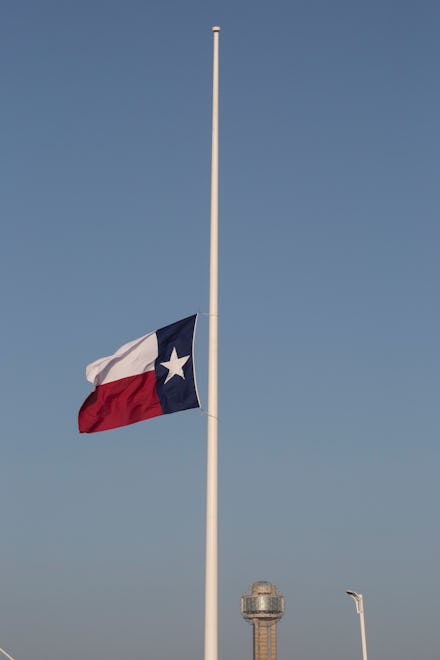Texas eyes North Carolina-inspired bathroom bill, seems cool with losing millions

The backlash against transgender rights has moved to Texas, where Lt. Gov. Dan Patrick is picking up where lawmakers in North Carolina left off.
Patrick has listed passing the "Women's Privacy Act," which requires people to use restrooms that correspond to the gender they were assigned at birth, as a priority for the upcoming legislative session, which is set to convene on Jan. 10. The bill has split the business and religious wings of the state party because of its estimated costs to state commerce: According to the 4,300-member Texas Association of Business, it could cost the state between $964 million and $8.5 billion more than 185,000.
"The message from the Texas business community is loud and clear," Chris Wallace, president of the Texas Association of Business, said at a news conference in December, according to the Texas Tribune. "Protecting Texas from billions of dollars in losses is simple: Don't pass unnecessary laws that discriminate against Texans and our visitors."
But Patrick doesn't seem too worried. "A majority of Texans in both political parties and in every ethnic and demographic group believe that women and girls should have privacy and safety in their restrooms, showers and locker rooms," he wrote in November. "Unfortunately, legislation is necessary to assure that they do."
In pushing Texas' bathroom bill, Patrick is failing to learn the lessons of North Carolina and Indiana. In 2016, HB2 — which, like the proposed law in Texas, made it illegal for transgender people to use public restrooms that did not match the gender they were assigned at birth — cost North Carolina more than $600 million, according to an estimate by Forbes. This included revenue associated with hosting the NBA All-Star game, which boycotted the state. Additionally, Republican Governor Pat McCrory, who signed the law, lost his re-election bid to Democrat Roy Cooper as a result.
In 2015, then-Indiana Governor, now-Vice President-elect Mike Pence signed the Religious Freedom Restoration Act. The legislation, which gave businesses the right to refuse service to LGBTQ patrons if doing so would violate their religious beliefs, activated a groundswell of LGBTQ activism and boycotts that ultimately cost Indiana an estimated $60 million in revenue in less than a year, according to a report from Visit Indy, a tourism organization based in Indianapolis.
But the economic concerns pale in comparison to the moral ones, according to those watching this process unfold slowly.
"They have their economic reasons they want to oppose this, for other organizations it's the right thing to do to fight back against this," said Rebecca Robertson of the ACLU of Texas. "People underestimate what these bathroom bills are about. The conversation is all about the bathroom and people don't realize the intent is to deny transgender Texans the right to participate in public life."
Lt. Gov. Patrick's office did not immediately respond to a request for comment.